Switzerland is a landlocked country in Central Europe bordered by Germany, France, Austria, Liechtenstein, and Italy. Its geography is dominated by the Alps, the Swiss Plateau, and the Jura mountains. While the Alps cover much of the territory, most of Switzerland's approximately 9 million inhabitants live on the plateau, where major cities and economic hubs like Zurich, Geneva, Basel, Bern, Lausanne, Winterthur, and Lucerne are located.
1900: End of the pre-industrial period
Since the pre-industrial period of 1871–1900, the national average temperature has risen by 2.9 °C, more than twice the global average.
1901: Johanna Spyri died
In 1901, Johanna Spyri, the creator of the famous Swiss literary creation Heidi, died.
1902: Confoederatio Helvetica inscribed on the Federal Palace
In 1902, the Latin name Confoederatio Helvetica appeared inscribed on the Federal Palace.
1911: Max Frisch born
In 1911, Max Frisch, a later Swiss writer, was born.
1912: SUVA attributed to Lucerne
In 1912, the Swiss Federal Assembly assigned the Swiss National Accident Insurance Fund (SUVA) to Lucerne.
August 1914: Second mobilisation due to World War I
In August 1914, the second general mobilisation was held in response to the First World War outbreak.
1917: Vladimir Lenin remained in Switzerland
In 1917, during World War I, Vladimir Illych Ulyanov (Vladimir Lenin) remained in Switzerland. Also, Swiss neutrality was seriously questioned by the short-lived Grimm–Hoffmann affair in 1917.
1917: Federal Insurance Court attributed to Lucerne
In 1917, the Swiss Federal Assembly attributed the Federal Insurance Court to Lucerne.
1920: Switzerland joined the League of Nations
In 1920, Switzerland joined the League of Nations, which was based in Geneva, after it was exempted from military requirements.
1921: Friedrich Dürrenmatt born
In 1921, Friedrich Dürrenmatt, a later Swiss writer, was born.
1930: Bank for International Settlements (BIS) moved to Basel
In 1930, the headquarters of the Bank for International Settlements (BIS) moved to Basel.
1930: Switzerland went from a largely rural country to an urban one
Switzerland went from a largely rural country to an urban one from 1930 to 2000.
1931: World Ski Championships in Mürren
The first world ski championships were held in Mürren in 1931.
1934: The WIR franc complemented the Swiss franc
In 1934, the WIR franc complemented the Swiss franc as a single currency.
1934: World Ski Championships in St. Moritz
The first world ski championships were held in St. Moritz in 1934.
1935: Urban development claimed as much of the Swiss landscape
After 1935 urban development claimed as much of the Swiss landscape as it did during the prior 2,000 years.
September 1939: Third mobilisation due to German attack on Poland
In September 1939, the third mobilisation took place in response to the German attack on Poland.
June 1940: Swiss Air Force engaged Luftwaffe planes
In June 1940, the Swiss Air Force engaged Luftwaffe planes, shooting down 11 intruding aircraft.
1942: Crucial rail link through Vichy France was severed
In 1942, Economic cooperation with Nazi Germany reached a peak after a crucial rail link through Vichy France was severed, leaving Switzerland (together with Liechtenstein) entirely isolated from the wider world by Axis-controlled territory.
1945: Switzerland was bombed by the Allies
Between 1940 and 1945, Switzerland was bombed by the Allies, causing fatalities and property damage in cities and towns like Basel, Brusio, Chiasso, Cornol, Geneva and Zurich.
1947: Charles Ferdinand Ramuz died
Charles Ferdinand Ramuz, a French-speaking Swiss author whose novels described the lives of peasants and mountain dwellers, died in 1947.
1948: Confoederatio Helvetica used in the official seal
After 1948, the Latin name Confoederatio Helvetica was used in the official seal.
1955: Motorsport Racecourses and Events Banned
Motorsport racecourses and events were banned in Switzerland following the 1955 Le Mans disaster, with exceptions for hillclimbing events.
1956: Eurovision Song Contest in Lugano
In 1956, Switzerland hosted the inaugural edition of the Eurovision Song Contest in Lugano and won through Lys Assia.
1959: Some Swiss cantons approved women's right to vote
In 1959, some Swiss cantons approved women's right to vote.
1959: Government has been a coalition of the four major political parties
Since 1959, the government has been a coalition of the four major political parties, each party having a number of seats that roughly reflects its share of the electorate and representation in the federal parliament.
1960: Expenditures of the Swiss Confederation
In 1960, the expenditures of the Swiss Confederation represented 7% of GDP.
1961: Blaise Cendrars died
Blaise Cendrars (born Frédéric Sauser), a French-speaking Swiss author, died in 1961.
1964: Switzerland joined the Council of Europe
In 1964, Switzerland joined the Council of Europe, marking a step in its foreign policy.
1968: Nuclear Non-Proliferation Treaty of 1968 was seen as a valid alternative
In 1968, the Nuclear Non-Proliferation Treaty of 1968 was seen as a valid alternative, preventing the substantial funds from being allocated to construction of a Swiss nuclear bomb.
1969: EPFL attributed to Lausanne
In 1969, the Swiss Federal Assembly attributed the École polytechnique fédérale de Lausanne (EPFL) to Lausanne.
1969: École Polytechnique Fédérale de Lausanne foundation
In 1969, the École Polytechnique Fédérale de Lausanne (EPFL) in Lausanne was founded, formerly associated with the University of Lausanne.
1970: Growing Non-Affiliation with Religion
Since about 1970, a steadily growing minority in Switzerland were not affiliated with any religious body.
1971: Women gained suffrage at the federal level
In 1971, women gained suffrage at the federal level in Switzerland.
1971: Warming has increased continuously every decade
Since 1971, warming has increased continuously every decade.
1975: European Space Agency foundation
In 1975, Switzerland was one of the 10 founders of the European Space Agency (ESA).
1979: The canton of Jura attained independence
In 1979, areas from the canton of Bern attained independence from the Bernese, forming the new canton of Jura.
1984: Elisabeth Kopp served on the Federal Council executive
In 1984, Elisabeth Kopp became the first woman on the seven-member Federal Council executive, serving until 1989.
1986: Nobel Prize in Physics
In 1986, Gerd Binnig and Heinrich Rohrer earned the Nobel Prize in Physics for the invention of the scanning tunnelling microscope.
1988: Celine Dion wins Eurovision
In 1988, Celine Dion won the Eurovision Song Contest for Switzerland.
1988: Plans for building nuclear weapons were dropped
In 1988, plans for building nuclear weapons were dropped, and the Paul Scherrer Institute was founded.
1989: Elisabeth Kopp left the Federal Council executive
In 1989, Elisabeth Kopp left the Federal Council executive, after serving since 1984.
1989: Eurovision Song Contest in Lausanne
In 1989, Switzerland hosted the Eurovision Song Contest in Lausanne.
1990: Population growth
Between 1800 and 1990, the number of inhabitants in Switzerland quadrupled.
1990: Appenzell Innerrhoden granted women the right to vote
In 1990, Appenzell Innerrhoden, one of the last cantons, granted women the right to vote.
1990: Friedrich Dürrenmatt died
In 1990, Friedrich Dürrenmatt, a Swiss writer, died.
1990: Expenditures of the Swiss Confederation
In 1990, the expenditures of the Swiss Confederation represented 9.7% of GDP.
1990: Reference year for GHG emission reduction target
Switzerland pledged to cut GHG emissions by 50% by 2030 compared to the level of 1990.
1991: Max Frisch died
In 1991, Max Frisch, a Swiss writer, died.
1991: Temperature increase above the 1991-2020 norm
In 2022, the nationwide average annual temperature reached 7.4 °C, which is 1.6 °C above the 1991–2020 norm.
May 1992: Application for membership in the European Union was sent
In May 1992, an application for membership in the European Union was sent, but did not advance.
December 1992: Switzerland conducted a referendum on the EEA
In December 1992, Switzerland conducted a referendum on the EEA.
1995: Austria's entry
Switzerland, together with Liechtenstein, has been surrounded by the EU since Austria's entry in 1995.
April 1999: Swiss population voted in favor of a revised federal constitution
On 18 April 1999, the Swiss population and the cantons voted in favor of a completely revised federal constitution.
1999: Ruth Dreifuss became the first female president
In 1999, Ruth Dreifuss became the first female president of Switzerland.
1999: 1999 Constitution
In 1999, the Swiss Constitution did not mention a Federal City, and the Federal Council has yet to address the matter.
1999: The constitution has been completely revised
The Federal Constitution adopted in 1848 is the legal foundation of Switzerland's federal state and has been completely revised twice, in 1874 and 1999.
June 2000: Unemployment rate increase
In June 2000, the unemployment rate in Switzerland was 1.7%.
2000: English elevated in some cantons
In 2000, English was elevated in a few cantons in Switzerland as the first foreign language in school.
2000: Moratorium expired
In 2000, a moratorium on building new nuclear power plants expired in Switzerland.
2000: Onyx intelligence gathering system maintained
Since 2000, the Swiss armed force department has maintained the Onyx intelligence gathering system to monitor satellite communications.
2000: Switzerland went from a largely rural country to an urban one
Switzerland went from a largely rural country to an urban one from 1930 to 2000.
2001: Das Versprechen released as Hollywood Film
In 2001, Friedrich Dürrenmatt's "Das Versprechen" (The Pledge) was released as a Hollywood film starring Jack Nicholson.
2001: Seven bilateral agreements liberalised trade ties
In 2001, seven bilateral agreements liberalised trade ties, including the free movement of persons.
2002: Switzerland joins the United Nations
In 2002, Switzerland became a full member of the United Nations, making it the first state to join it by referendum.
2002: Switzerland became a full member of the United Nations
In 2002, Switzerland became a full member of the United Nations.
May 2003: Anti-nuclear referendums defeated
On 18 May 2003, two anti-nuclear referendums were defeated in Switzerland: Moratorium Plus and Electricity Without Nuclear.
2003: Foreign students in tertiary education
In 2003, Switzerland had the second highest rate (almost 18%) of foreign students in tertiary education, after Australia (slightly over 18%).
2003: Army XXI reform adopted
In 2003, the reform "Army XXI" was adopted by popular vote, replacing "Army 95", reducing the rolls from 400,000 to about 200,000.
2003: Alinghi Wins America's Cup
In 2003, the sailing team Alinghi was the first European team to win the America's Cup.
2003: Seven seats in the Federal Council have been distributed
Since 2003, the seven seats in the Federal Council have been distributed as follows:
2004: Second series of agreements signed
In 2004, a second series of agreements covering nine areas was signed, including the Schengen Treaty and the Dublin Convention.
2004: Trade union membership and population growth
In 2004, about 25% of employees in Switzerland belonged to a trade union, and population growth (from net immigration) reached 0.52% of the population.
2004: Federal Criminal Court attributed to Bellinzona
In 2004, the Federal Criminal Court was attributed to Bellinzona.
June 2005: Swiss voters agreed to join the Schengen treaty
On 5 June 2005, Swiss voters agreed by a 55% majority to join the Schengen treaty.
2005: Thomas Lüthi Wins MotoGP World Championship
In 2005, Swiss motorcycle racer Thomas Lüthi won the MotoGP World Championship in the 125cc category.
2006: Referendum approves investment in Southern and Central European countries
In 2006, a referendum approved 1 billion francs of supportive investment in Southern and Central European countries to support ties to the EU.
2006: UN Human Rights Council hosts in Geneva
Since 2006, Geneva hosts the United Nations Human Rights Council.
2007: Alinghi Defends America's Cup Title
In 2007, Alinghi successfully defended the America's Cup title.
2007: Housing and food price levels comparison
In 2007, Housing and food price levels in Switzerland were 171% and 145% of the EU-25 index, compared to 113% and 104% in Germany.
2007: Switzerland Wins A1GP World Cup of Motorsport
In 2007, Switzerland won the A1GP World Cup of Motorsport with driver Neel Jani.
December 2009: Unemployment rate at 4.4%
In December 2009, the unemployment rate in Switzerland had increased to 4.4%.
2009: IIHF World Championship hosted by Switzerland
In 2009, Switzerland hosted the IIHF World Championship for the tenth time.
2010: Public transport use in Zurich
A 2010 microcensus in Zurich, Switzerland found that 32% of inhabitants regularly used public transport, while 26% depended on a personal vehicle.
2010: Swiss Federal budget reached 62.8 billion Swiss francs
In 2010, the Swiss Federal budget reached 62.8 billion Swiss francs, representing 11.35% of GDP. Expenditures of the Swiss Confederation have been growing.
2010: Warmest years in Switzerland were recorded after 2010
The nine warmest years in Switzerland were all recorded after 2010.
2011: Plans to end nuclear energy use
In 2011, after the Fukushima nuclear disaster, the Swiss government announced plans to end the use of nuclear energy in the following 20 to 30 years.
2012: Geneva Airport passenger traffic
Geneva Airport handled 13.9 million passengers in 2012.
2012: Non-Affiliation with Religion
In 2012, 21.4% of Switzerland's population were not affiliated with any religious body, especially in traditionally Protestant regions, such as Basel-City (42%), canton of Neuchâtel (38%), canton of Geneva (35%), canton of Vaud (26%), or Zurich city (city: >25%; canton: 23%).
2012: Immigrant background population
In 2012, 34.7% of the permanent resident population aged 15 or over in Switzerland had an immigrant background.
2012: Federal Administrative Court and Federal Patent Court attributed to St. Gallen
In 2012, the Swiss Federal Assembly attributed the Federal Administrative Court and Federal Patent Court to St. Gallen.
2013: Switzerland Becomes World Vice-Champion in Ice Hockey
Switzerland became World Vice-Champion in ice hockey in 2013.
February 2014: Swiss voters approved a ballot initiative to restrict immigration
On 9 February 2014, 50.3% of Swiss voters approved a ballot initiative launched by the Swiss People's Party (SVP/UDC) to restrict immigration.
2014: Switzerland ranked first in safeguarding the environment
According to the 2014 Environmental Performance Index, Switzerland ranked first among 132 nations in safeguarding the environment.
2014: Discrimination
In 2014, 10% of the population in Switzerland claimed to have been targeted by racial discrimination, according to the Federal Statistical Office.
2014: Marcel Fässler Wins 24 Hours of Le Mans
In 2014, Marcel Fässler, a Swiss racing driver, won the 24 Hours of Le Mans.
2014: Unemployment rate decrease
In 2014, the unemployment rate in Switzerland decreased to 3.2% and remained steady for several years.
2014: Global Green Economy Index
The 2014 Global Green Economy Index placed Switzerland among the top 10 green economies.
2015: Reduction of expenditures in agriculture and national defence
Estimation for the year 2015, a significant reduction of expenditures has been occurring in agriculture and national defence; from 26.5% to 12.4%.
2015: Nico Müller Wins 24 Hours Nürburgring
In 2015, Nico Müller, a Swiss racing driver, won the 24 Hours Nürburgring.
2015: University rankings
In 2015, the Swiss Federal Institute of Technology Zurich (ETHZ) and the University of Zurich were listed 20th and 54th respectively, on the Academic Ranking of World Universities.
2015: Foreign citizen population
In 2015, the foreign citizen population in Switzerland was 28.9%, similar to Australia.
2015: Wealth distribution
In 2015, the richest 1% owned 35% of the wealth in Switzerland.
November 2016: Referendum to accelerate nuclear phaseout rejected
In November 2016, Swiss voters rejected a Green Party referendum to accelerate the phaseout of nuclear power.
December 2016: Political compromise with the EU was attained
In December 2016, a political compromise with the EU was attained that eliminated quotas on EU citizens, but still allowed favourable treatment of Swiss-based job applicants.
2016: Swiss Religion Statistics
According to national surveys of the Swiss Federal Statistical Office from 2016 to 2018, Christianity was the predominant religion, with about 67% of the resident population and 75% of Swiss citizens identifying as Christian.
2016: Language distribution
In 2016, German was spoken natively by 62.8% of the population in Switzerland, French by 22.9%, and Italian by 8.2%.
2016: EU membership application withdrawn
In 2016, Switzerland formally withdrew its application for European Union membership.
2016: Switzerland biocapacity
In 2016, Switzerland had 1.0 hectares of biocapacity per person within its territory, 40 per cent less than world average of 1.6. Also, in 2016, Swiss consumption required 4.6 hectares of biocapacity.
2016: Languages spoken at home
In 2016, the languages most spoken at home among permanent residents aged 15 and older in Switzerland were Swiss German (59.4%), French (23.5%), Standard German (10.6%), and Italian (8.5%).
2017: Switzerland ranked 11th in purchasing power
In 2017, Switzerland ranked 11th in the world when adjusted for purchasing power.
2017: Population growth
In 2017, population growth (from net immigration) in Switzerland fell to 0.54% of the population.
2018: One of the warmest years in Switzerland
2018 was one of the warmest years in Switzerland since measurements began.
2018: Racism perception
A 2018 study reported that 59% considered racism a serious problem in Switzerland. Also, the proportion of the population that claimed to have been targeted by racial discrimination increased to almost 17%.
2018: Swiss Religion Statistics
According to national surveys of the Swiss Federal Statistical Office from 2016 to 2018, Christianity was the predominant religion, with about 67% of the resident population and 75% of Swiss citizens identifying as Christian.
2018: Cantons comprised 2,222 municipalities
As of 2018 the cantons comprised 2,222 municipalities.
2018: Switzerland ranked 5th in purchasing power
In 2018, Switzerland ranked 5th in the world when adjusted for purchasing power.
2018: WEA military reform started
In 2018, the Weiterentwicklung der Armee (WEA; English: Further development of the Army) military reform started.
2018: Basel-City with the highest GDP per capita
In 2018, the canton of Basel-City had the highest GDP per capita in Switzerland, ahead of Zug and Geneva.
2018: Cooperative companies accounting for more than 11% of GDP
In 2018, the ten largest cooperative companies in Switzerland accounted for more than 11% of the GDP.
2018: Unemployment rate drop
In 2018, the unemployment rate in Switzerland further dropped to 2.5%.
2018: Switzerland Becomes World Vice-Champion in Ice Hockey
Switzerland became World Vice-Champion in ice hockey in 2018.
2019: Multilingualism
In 2019, more than two-thirds (68%) of the permanent resident population in Switzerland indicated speaking more than one language regularly.
2019: Unemployment rate at 2.3%
In 2019, the unemployment rate in Switzerland was 2.3%.
2019: Wealth inequality increase
In Switzerland, wealth inequality increased through 2019.
2019: Forest Landscape Integrity Index mean score
Switzerland had a 2019 Forest Landscape Integrity Index mean score of 3.53/10, ranking it 150th globally out of 172 countries.
2019: Ranked the most innovative country in the Global Innovation Index
Switzerland has been ranked the most innovative country in the Global Innovation Index in 2019.
2019: Academic Ranking of World Universities
Switzerland ranked 87th on the 2019 Academic Ranking of World Universities.
2019: Average population density in 2019
The average population density in 2019 was 215.2 inhabitants per square kilometre (557/sq mi).
September 2020: Voters rejected the attempt to retake control of immigration
In September 2020, a referendum calling for a vote to end the pact that allowed a free movement of people from the European Union was introduced by the Swiss People's Party (SVP). However, voters rejected the attempt to retake control of immigration, defeating the motion by a roughly 63%–37% margin.
September 2020: Swiss voters rejected the anti-free movement referendum by SVP
On 27 September 2020, 62% of Swiss voters rejected the anti-free movement referendum by SVP.
2020: One of the warmest years in Switzerland
2020 was one of the warmest years in Switzerland since measurements began.
2020: Religious diversity in Switzerland
As of 2020, Christian minority communities included Neo-Pietism (0.5%), Pentecostalism (0.4%), Apostolic communities (0.3%), other Protestant denominations (1.1%), the Old Catholic Church (0.1%), other Christian denominations (0.3%). Non-Christian religions include Islam (5.3%), Hinduism (0.6%), Buddhism (0.5%), Judaism (0.25%) and others (0.4%).
2020: Ethnic groups
As of 2020, the largest ethnic group in Switzerland is Swiss (69.2%), followed by German (4.2%), Italian (3.2%), Portuguese (2.5%), French (2.1%), Kosovan (1.1%), Turkish (1%), and other (16.7%).
2020: Switzerland ranked 9th in purchasing power
In 2020, Switzerland ranked 9th in the world when adjusted for purchasing power.
2020: Switzerland ranked third in the Environmental Performance Index
In 2020, Switzerland was ranked third out of 180 countries in the Environmental Performance Index.
2020: Ranked the most innovative country in the Global Innovation Index
Switzerland has been ranked the most innovative country in the Global Innovation Index in 2020.
2021: Immigrant background population
2021 figures show that 39.5% of the permanent resident population aged 15 or over in Switzerland had an immigrant background.
2021: Switzerland thirteenth largest exporter
As of 2021, Switzerland is the thirteenth largest exporter, and the fifth largest per capita.
2021: Ranked the most innovative country in the Global Innovation Index
Switzerland has been ranked the most innovative country in the Global Innovation Index in 2021.
May 2022: Motorsport Ban Lifted
In May 2022, the ban on motorsport racecourses and events was lifted in Switzerland, due to improved safety in motorsport.
2022: Life expectancy
In 2022, life expectancy at birth in Switzerland was 82.2 years for men and 85.8 years for women.
2022: Median monthly gross income
In 2022, the median monthly gross income in Switzerland was 6,788 francs per month (equivalent to US$7,467 per month).
2022: Ranked the most innovative country in the Global Innovation Index
Switzerland has been ranked the most innovative country in the Global Innovation Index in 2022.
2022: WEA expected to reduce army personnel
The Weiterentwicklung der Armee (WEA) military reform, started in 2018, was expected to reduce the number of army personnel to 100,000 by the end of 2022.
2022: Nationwide average annual temperature in 2022 reached 7.4 °C
The nationwide average annual temperature in 2022 reached 7.4 °C (1.6 °C above the 1991–2020 norm), the highest value since measurements began in 1864.
2023: One of the warmest years in Switzerland
2023 was one of the warmest years in Switzerland since measurements began.
2023: Switzerland joins United Nations Security Council
In 2023, Switzerland became a member of the United Nations Security Council for the 2023–2024 period.
2023: Second-highest global rating in the Index of Economic Freedom
In 2023, Switzerland had the second-highest global rating in the Index of Economic Freedom, while also providing significant public services.
2023: Foreign population statistics
In 2023, resident foreigners made up 26.3% of Switzerland's population, with most originating from European countries.
2023: Rail network statistics
In 2023, the rail network in Switzerland carried 614 million passengers, and each Swiss resident travelled on average 2,446 kilometres by rail.
2023: 20-year low unemployment rate
In 2023, the unemployment rate in Switzerland reached a 20-year low of 2%.
2023: Ranked the most innovative country in the Global Innovation Index
Switzerland has been ranked the most innovative country in the Global Innovation Index in 2023.
June 2024: Swiss population size
The Swiss population is about 9 million as of June 2024.
2024: One of the warmest years in Switzerland
2024 was one of the warmest years in Switzerland since measurements began.
2024: Switzerland ranked 6th most peaceful country
According to the 2024 Global Peace Index, Switzerland is the 6th most peaceful country in the world.
2024: Decline in Religious Event Attendance
By 2024, half of the Swiss population never attended a religious event in the past 12 months preceding, according to the Federal Statistical Office.
2024: Switzerland ranked 10th highest GDP per capita
In 2024, the CIA World Factbook ranked Switzerland as having the 10th highest GDP per capita (at purchasing power parity) in the world.
2024: Switzerland Becomes World Vice-Champion in Ice Hockey
Switzerland became World Vice-Champion in ice hockey in 2024.
2024: Ranked the most innovative country in the Global Innovation Index
Switzerland has been ranked the most innovative country in the Global Innovation Index in 2024.
2024: Switzerland ranked 9th in the Environmental Performance Index for 2024
Switzerland ranked 9th in the Environmental Performance Index for 2024, with high scores in areas like air pollution, sanitation, and climate change mitigation.
2024: Zurich Airport passenger traffic
Zurich Airport handled 31.2 million passengers in 2024.
2025: Eurovision Song Contest in Basel
In 2025, Switzerland is scheduled to host the Eurovision Song Contest in Basel.
2025: Motor vehicles in Switzerland
Switzerland had approximately 6,562,600 motor vehicles (excluding mopeds) in 2025, with passenger cars being the largest category.
2025: Ranked the most innovative country in the Global Innovation Index
Switzerland has been ranked the most innovative country in the Global Innovation Index in 2025.
2030: Country pledge to cut GHG emissions by 50% by 2030
Switzerland pledged to cut GHG emissions by 50% by 2030 compared to the level of 1990.
2035: Projected population growth
Population growth in Switzerland is projected to continue to 2035, due mostly to immigration.
2050: Switzerland plans to reach zero emissions by 2050
Switzerland plans to reach zero emissions by 2050.
2050: Energy use reduction goal
The Swiss Federal Office of Energy (SFOE) supports the 2000-watt society initiative to cut the nation's energy use by more than half by 2050.
Mentioned in this timeline
The Winter Olympic Games a major international multi-sport event held...
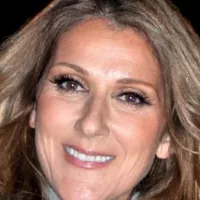
C line Dion is a highly successful Canadian singer often...

Roger Federer is a retired Swiss professional tennis player widely...
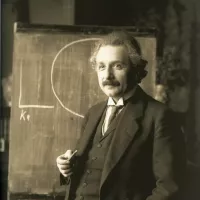
Albert Einstein - was a German-born theoretical physicist renowned for...

The Catholic Church the largest Christian church globally with over...
Australia officially the Commonwealth of Australia encompasses the Australian mainland...
Trending
34 minutes ago Canada vs New Zealand T20 World Cup 2026: Thrill, Live Scores, and Game Updates.
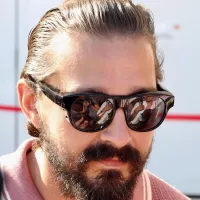
34 minutes ago Shia LaBeouf Spotted at New Orleans' Mardi Gras Bar Crawl, Draws Mixed Reactions.
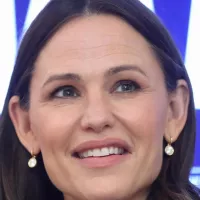
35 minutes ago Jennifer Garner Promotes 'The Last Thing He Told Me' in Stunning Black Dress.
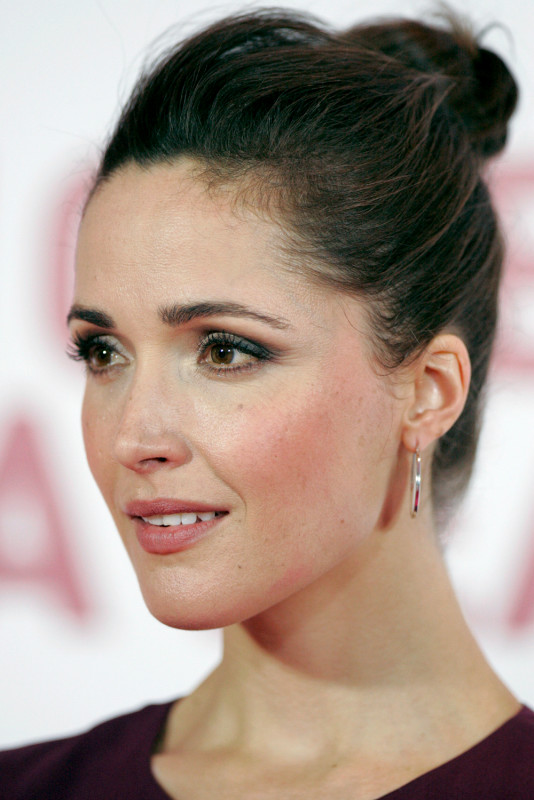
35 minutes ago Rose Byrne Wins Spirit Award and Stuns in Bold Dress at Film Awards.

35 minutes ago Netanyahu pushes for dismantling Iran's nuclear program amid US-Israel strategy differences.
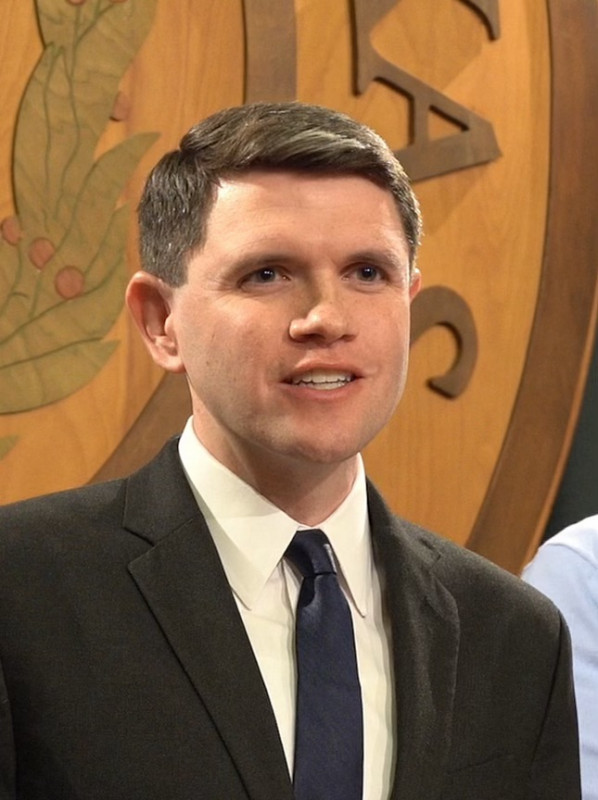
35 minutes ago Crockett and Talarico clash in Texas Senate race amid unity concerns.
Popular
Randall Adam Fine is an American politician a Republican who...

Pam Bondi is an American attorney lobbyist and politician currently...

Kid Rock born Robert James Ritchie is an American musician...

Barack Obama the th U S President - was the...
The Winter Olympic Games a major international multi-sport event held...

XXXTentacion born Jahseh Dwayne Ricardo Onfroy was a controversial yet...